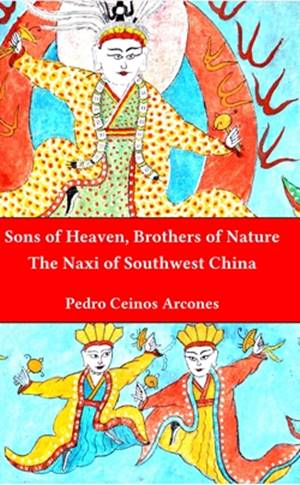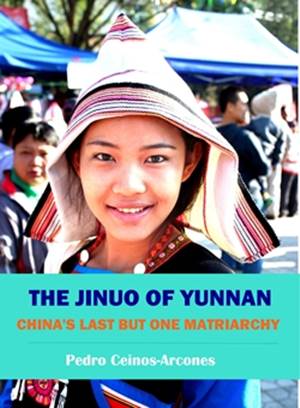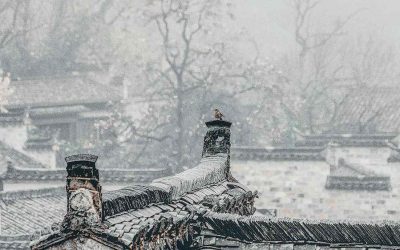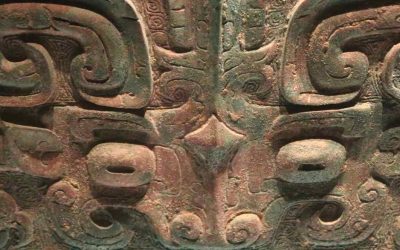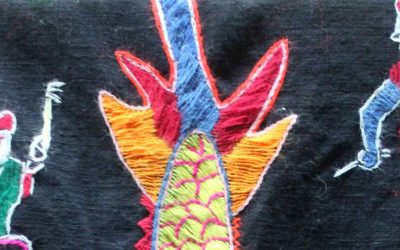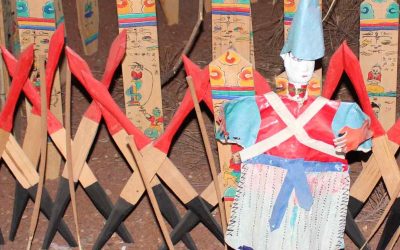Now is the time to ask him something about Taoism, I decided, and I poured out my questions. He looked up at me with his innocent, childish eyes, his smile gentle but, I thought, slightly ironical.
‘Take time, observe and learn,’ he said simply. ‘Words spoken in haste will not stick; a cup of water splashed into a parched field will do it no good. It is only a slow and gentle rain that will saturate the soil and produce life.’ He became silent ready to resume his work.
His rebuke abashed me. I saw what he meant. He probably thought I was an idle tourist, or worse, a young writer, who wanted to learn something about Taoism in an hour or so, and then write a smart article, boasting of the mysteries revealed to him. Seeing my obvious confusion, the old man relented. His face was all smiles now, but his eyes became thoughtful.
‘If you want to learn about the Eternal Tao, do not be casual and in a hurry. Don’t glean too much from too many books, for each book is full of opinions, prejudices and corruptions.
Read only one book and only one—our Old Master’s Taoteking, and then try to understand it, not by juggling the words and meanings, but intuitively, through your heart and spirit. Don’t ask too many questions, but patiently watch what we Taoists do, and perceive the hidden motives of our actions, and not that which is only for display.
Do not be guided so much by your intellect as by faith, love and your heart, which is another name for understanding and compassion. What you need is wisdom, and not knowledge; for if one has wisdom, knowledge will come naturally. Always remember that the Eternal Tao is Infinite Wisdom, Infinite Love and Infinite Simplicity.’ And with this the old man took up his pickaxe and resumed his hoeing of the bush.
From: Peter Goullart. The monastery of Jade Mountain. 1961
More posts on Chinese culture
Buddhist Monks in Medieval China
Buddhist Monks in Medieval China That is the subject of John Kieschnick's book. The book analyzes the contents of the three collections of biographies of monks that became famous in medieval China, through them he tries to give us first a characterization of the...
Manual of Taoist Architecture
Manual of Taoist Architecture There are some illustrated books that produce in the reader a contradictory feeling, because the images that explain what the text is about are sometimes accompanied by an exposition of ideas that is too superficial. Therefore the reader...
How the presence of goddesses paves the way for female power
How the presence of goddesses paved the way for female power One of the theses of my book Matriarchy in China: mothers, goddesses, queens and shamans (Madrid, 2011) was to assert that the presence of goddesses with prominent roles in a culture could signal the past or...
Spirits possession in ancient China
Spirits possession in ancient China. I have just finished reading The Ancestors Are Drunk, a book by Jordan Paper. Perhaps one of the best books on the religion of China that can be found, because with every chapter, almost with every page, he opens new windows,...
Yan Lianke. The Four Books
Yan Lianke. The Four Books The Four Books refers to the famous Four Books of Confucius, the basis of Chinese thought for two millennia. And like those of Confucius, these by Yan Lianke could become a new model for understanding the glories and miseries of human...
What if China’s history had been precipitated by the eruption of a volcano in Greece?
What if China's history had been precipitated by the eruption of a volcano in Greece? Although in present times there is greater concern about global phenomena, it is not that they did not happen before. Some natural catastrophes in the past were so violent that they...
More posts on China ethnic groups
Thoughts about the Yao history
Thoughts about the Yao history Two of the papers presented in the First International Congress of Yao Studies deal with the origin and meaning of the "King Ping's Charter", a kind of document that granted the Yao free pass across the mountains of the 15 southern...
History of the Yao of China
History of the Yao of China The Yao consider that Panhu is their ancestor. A mythical figure placed in the center of their most important myths that had real existence for them. Some of the modern specialists agree that Panhu is, in fact, a mythified local hero, which...
Interpretation of dreams among the Yao
Interpretation of dreams among the Yao The Yao have a complex system of dream interpretation, which, like other neighboring peoples, they divide into auspicious and unfortunate. For them, to dream of the sun setting behind a hill announced a calamity upon the parents....
The Monastery of Sera – History and foundation
The Monastery of Sera - History and foundation Sera Monastery, located on the outskirts of Lhasa, is one of the largest monasteries in Tibet, and one of the most important centers of learning. Still today many young Tibetans come to the monastery to be trained in the...
The monasteries of Tibet- the soul of the land
The monasteries of Tibet- the soul of the land One of the most charismatic aspects of Tibetan culture is its monasteries. Mention Tibet to anyone, at least in the West, and they will immediately associate that word with the monasteries and their monks. Those...
The Llubhu, women shamans of the Naxi
The Llubhu, women shamans of the Naxi The llubhu (also called sunyi) are the Naxi sorcerers or sorceresses. In ancient days they were always women, mediums who went into trances and claimed to see ghosts, the spirit of the deceased persons. They have the power of...


